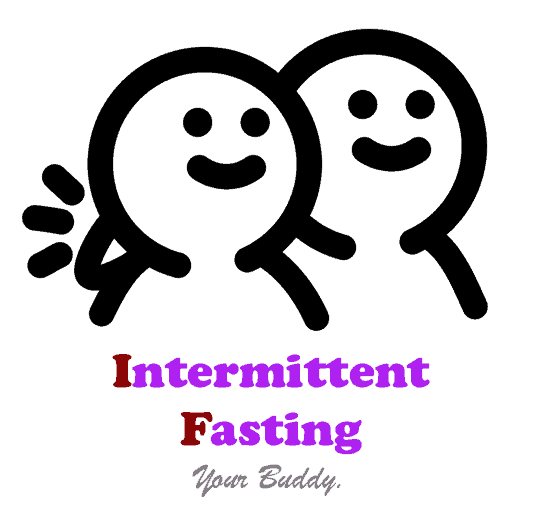Intermittent fasting for night shifters is a heated debated topic. Some swear by it and will present you with a long list of benefits. Others will warn you against it, citing risks and side effects.
The truth is somewhere in the middle and it depends on a lot of circumstances. For instance, do you only work night shifts or is it something that happens a couple of times a week or less? Is the work you do physically demanding, do you need to be extremely alert at all times, or is it something less challenging like sitting at your computer and answering phone calls?
There’s also the issue of sleep deprivation and how it affects the circadian rhythm, which in turn affects your blood sugar and your appetite. Research shows there’s an increased risk of both cardiovascular disease and metabolic syndrome for those who work night shifts. Does this mean your doomed if you have to work night shifts? Absolutely not. Keep reading to find out more about intermittent fasting for night shifters, when and how to do it safely, and more.
“Fasting has shown to have a whole list of health benefits, and if you work nights then you especially need them.”
Is intermittent fasting different for night shifters?
In general, intermittent fasting works regardless of when you sleep. However, as we’ll see further on, sleep is crucial with intermittent fasting and with our health in general. That’s because it can impact in a not so positive way both blood sugar and appetite.
People who use the 16:8 version of intermittent fasting, or similar variants, usually place their 8-hour of eating in the middle of the day. Most will start eating between 10 a.m. and noon. That way, you have your last meal in the evening between 6 – 8 p.m. If your eating window is shorter, you might start eating later or stop eating earlier.
The one thing everyone has in common though is that about 8 hours of the fasting window are during the night, while they’re asleep. If you work night shifts, this all becomes a bit harder.
Determining your eating window
You need to start thinking of ways in which you can readjust your eating window. You don’t want to get a hunger attack in the middle of your work shift. That means you should move your eating window so that you finish eating before you start your shift, or at most 2-3 hours earlier. But this also depends on a few other factors. For instance:
- Do you sleep before or after the shift?
- If/when you work day shifts, do you eat while at work or do you do it afterward?
If you sleep after your shift, then eating before work will be perfect for you. Otherwise having your eating window before your shift is not realistic. In case you have a physical job, or you simply cannot fathom the idea of not eating while you’re at work, your shift will need to become your eating window. Otherwise, you can leave it for after work.
Constant vs occasional night shifts
If you only work night shifts, then adjusting your intermittent fasting diet will be easy. You determine your eating window and stick to it each day.
However, if you only work a few night shifts a month, the struggle will be bigger and might not be worth it. You’ll need to determine if you can move your eating window for just those days or not. If you find the answer is no, do your fasting as you normally would, and if hunger strikes at night, allow yourself to eat something. It may not be ideal, but again, if we’re only talking about a few days a month, your overall diet won’t be compromised.
Can you do intermittent fasting when you work a physical job?
If your job is very demanding from a physical point of view, intermittent fasting may require a bit more attention both for day shifters and especially for night shifters.
The best thing to do is to end your eating window just before your shift starts. That way, you’ll have enough energy for work, and the chances of having an energy crash in the middle of the shift are slim. If needed you can add some coffee or tea while you work, preferably unsweetened and without creamer. This will again provide you with energy, without breaking your fast.
However, if you know your job is extremely demanding and you don’t think you can work at maximum capacity without any food during your shift, adjust your eating window a bit differently. You can start eating, for instance, just before work and have another meal during your shift, whenever you need it.
Remember that the key to having a lot of energy during work isn’t just when you eat but also what you eat. So consider adding a bit more carbs or more fat if you prefer a high-protein, high-fat diet, during your workdays.
Another thing to do during a night shift that will help you succeed with intermittent fasting is staying hydrated. Why? Because when fasting, your body is naturally looking for alternate sources of energy. This means you’re burning more fat, which is great news if your goal is weight loss. The downside is that more toxins need to be eliminated from the body. Drinking water helps flush out toxins and in doing so, it gives you more energy.
A report published by The National Academies of Science Engineering Medicine found that women need to drink at least 2.7 liters or about 11 cups of water, while men need 3.7 liters which is roughly 15 cups. If you’re fasting, working night shifts, and working a physical job, it’s safe to say, you need to aim for more!
What is the downside of working night shifts?
We’ve all heard we should sleep 7-8 hours, but did you know when we sleep could be just as important for our health?
It is estimated that at the moment, about 15-20% of the population works night shifts, both regularly and occasionally. A 2007 study qualified night shifts as carcinogenic. In 2019, another study concluded there is not sufficient evidence to make such a definitive claim, but didn’t deny it completely either. The conclusion? While it isn’t certain that working nights will give you cancer, it’s safe to say it isn’t the best for your health.
It has also been proven that rotating shift work puts women at greater risk for coronary heart disease. And, sadly, there’s more. Shift work disrupts the normal sleeping pattern and the circadian rhythm. This puts you at greater risk for insulin resistance, diabetes, obesity, and even Alzheimer’s disease.
The thing that comes to mind reading all this is that if you work night shifts your only chance at staying healthy is finding a new job. However, that’s easier said than done. Some professions require night shifts due to their nature. Doctors, firefighters, police officers are only some of those who may be unable to ditch the night shifts.
The good news is, you can still be healthy, but you’ll probably need to pay more attention to your lifestyle. Intermittent fasting, if done correctly, can help mitigate a lot of the side effects of night shifts, just like getting enough sleep will.
Why is sleep so important with intermittent fasting?
Did you know that sleeping less than 6 hours just one night can give you symptoms similar to pre-diabetes and can impair your cognitive function? That means you are more predisposed to weight gain and neurodegeneration due to oxidative stress.
Your insulin sensitivity diminishes, and you have a harder time balancing your blood sugar. All of that is followed by poor food choices, cravings for sugary and salty foods, and overeating.
Shift work is also known to raise cortisol, the stress hormone. Cortisol is good up to a point. It helps us stay alert in stressful or dangerous situations. It regulates our fight or flight response. In short, it helps us stay alive. In prehistoric times, cortisol helped us survive: we’d get scared of whatever was chasing us through the jungle and would run for our lives, using the cortisol in the process.
Nowadays, stress is something a little different. We don’t have the same chance to run for our lives after a stressful situation arises. And so, excess cortisol builds up. And we find ourselves facing all its side effects: cravings for sugar or salty foods, increased appetite, weight gain especially around the belly, insomnia, and more.
In other words, shift work, along with being sleep deprived means you’ll have a harder time sticking to your intermittent fasting diet. You’ll be more tempted to overeat in your eating window, but you’ll also find it a lot harder not to it during your fast.
Benefits of intermittent fasting for night shifters
Now that we’ve talked all about the side effects of working night shifts, it’s time we discussed why intermittent fasting is a great way to counteract many of them.
Firstly, intermittent fasting helps reduce many of the metabolic side effects of working at night. That means, it will give you back control over your appetite, or at least, it will reduce cravings for sugary and salty foods. You’ll be able to maintain your muscle mass and even lose some weight if that is your goal.
On top of that, intermittent fasting will also help or prevent insulin resistance. This brings us back to the appetite control we were talking about earlier. But it also means it reduces your risk of getting diabetes.
Fasting also helps regulate the growth hormone. This helps you maintain ideal body composition, while also providing anti-aging benefits. The hormone could also make you grow. (Read: Does Intermittent Fasting Make You Grow?)
We know that sleep deprivation can cause premature aging, and intermittent fasting may be just the cure you needed. Besides, fasting has been shown to increase longevity another positive effect considering night shifts will usually do the opposite.
Finally, intermittent fasting can improve mental clarity, something everyone, but especially night shifters need.
Common when doing intermittent fasting during the night shift
Seeing all these benefits, it may be easy to think all you need to do is set your eating and fasting window respectively, and you’re good to go. However, there are a few things that can sabotage your efforts and leave you vulnerable to all the shift work side effects.
You’re eating all the junk food
This is a mistake everyone starting intermittent fasting might do, but it is easier to fall into its trap when working at night. That’s because it can be harder to find places that sell healthy foods during the night. As a result, you’re stuck with the food you bring to work. If your eating window falls during work hours, the temptation to go for junk food may be huge. Do your best to stay away from it. Junk food is just as detrimental, whether you fast or not.
You’re eating over your maintenance limit
In other words, you’re using your eating window to binge. This is a common mistake people make when they start intermittent fasting. They believe that just because they abstain from food for so many hours, they can eat as much as they want during their eating window. Your daily caloric needs are the same regardless of your diet, and just because you only eat for 8 hours or less, it doesn’t mean you won’t gain weight if you go over the limit.
This mistake is often exacerbated in night shifters. You already know working nights is more challenging for your body. So why not add a few more calories in? While it is true that you may be ok eating slightly more if you’re a night shift worker, overeating, or binging even, will be detrimental for your health and will eventually make you gain weight. Overeating also negatively impacts your blood sugar and your insulin, so you’d be overriding all the health benefits that intermittent fasting can bring.
You’re constantly snacking during your eating window
This is a mistake made mostly by those who set their eating window while they’re at work, especially if they have a desk job. Since it is night, it can be a bit harder to have the proper structure that exists during the day, with lunch and dinner.
The best solution is to figure out your best eating schedule and take your meal break, as you would for lunch. The rest of the time, keep the snacks at a distance and only resort to them if you’re feeling very hungry, not just if you’re bored. Also, increase your water intake, which will increase your energy, will detoxify your body, and will normalize your appetite.
You’re not drinking enough water
As you saw earlier, drinking enough water during a fast is crucial in removing toxins. But there’s another benefit: water helps regulate your appetite, can prevent cravings, and can stop you from snacking mindlessly. Did you know oftentimes people confuse thirst for hunger? This can be even more true for intermittent fasting during night shifts. Boredom and tiredness will make you want to reach for the snacks all the time. To prevent this from happening, make sure you stay hydrated.
You’re not eating enough
We’ve talked about how easy it can be to overeat during a night shift, but the reverse is also possible. It can happen when you restrict your eating window too much. You might also be one of those people who truly don’t feel hungry at night. That way you can try and take advantage to eat a lot less than your daily caloric needs.
If it happens once or twice, it won’t be a tragedy. However, if under eating becomes something normal for you, you risk to mess up your metabolism and hinder all your weight loss efforts. You’ll also be missing key nutrients and you’ll lose some of the benefits of intermittent fasting in the process.
When should you avoid fasting during the night shift?
While fasting has many health benefits, there are instances, especially if you work night shifts, when breaking the fast might be best. So if you know you’re prone to hypoglycemia, if you have a history of getting dizzy, or if you feel particularly tired or sluggish, it may be best to simply eat without thinking too much of your perfect eating window.
This is especially important if you have a physically challenging job or one that requires extreme attention to detail. You want to make sure you never end up hypoglycemic during your shift.
Conclusions
Intermittent fasting for night shifters is both possible and beneficial.
Working night shifts can have serious side effects on your health. It puts you at higher risk for cardiovascular disease, but it also lowers insulin sensitivity, making you more prone to insulin resistance, diabetes, and obesity. Not to mention that if on top of working night shifts, you also sleep less, you’re more prone to changes in appetite and blood sugar dysregulation.
Intermittent fasting can help with all this, by keeping your blood sugar stable, boosting your metabolism and helping you have more overall energy. Be sure to adjust your eating and fasting windows respectively according to your working schedule. Whether you eat while you work, before or after, doesn’t truly matter. The important is that you have enough energy for your activities, don’t have sugar crashes, and don’t eat a lot of junk food. However, if you encounter any challenges, such as hypoglycemia or extreme fatigue, break your fast during the night shift, to avoid feeling sick.


